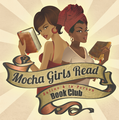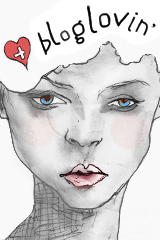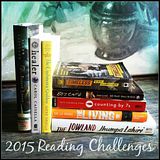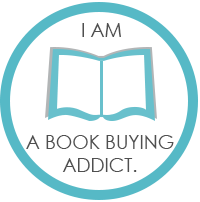I am so thrilled to have this opportunity to share with you the preface of Anne (my favorite author) Rice's book The Claiming of Sleeping Beauty. The book as well as the other books in the series are currently on tour with AToMR Book Blog tours. Stop by and get to know Anne Rice and her books better.
About the book
From bestselling author Anne Rice, writing as A.N. Roquleaure. In the traditional folktale of 'Sleeping Beauty,' the spell cast upon the lovely young princess and everyone in her castle can only be broken by the kiss of a Prince. It is an ancient story, one that originally emerged from and still deeply disturbs the mind's unconscious. Now Anne Rice's retelling of the Beauty story probes the unspoken implications of this lush, suggestive tale by exploring its undeniable connection to sexual desire. Here the Prince reawakens Beauty, not with a kiss, but with sexual initiation. His reward for ending the hundred years of enchantment is Beauty's complete and total enslavement to him as Anne Rice explores the world of erotic yearning and fantasy in a classic that becomes, with her skillful pen, a compelling experience.
Preface
New preface and new covers released nation wide July 11, 2012
I’ve always loved the fairy tale Sleeping Beauty, and found something erotic at its core. The Prince awakens Beauty with a kiss. And I thought, all right, what if he brought a kind of liberation, an induction into a world of bizarre yet irresistible delights? It has to be remembered that within the frame of a sadomasochistic fantasy like the Beauty trilogy, the readers are invited to identify with and enjoy the predicament of the slaves. The books aren’t about literal cruelty; they’re about surrender, the fun of imagining you have no choice but to enjoy sex. Beauty’s slavery is delicious, sensuous, abandoned, and ultimately liberating. This is all part of the framework. And it seemed to work exquisitely with the old fairy tale. And of course the fairy tale removes us from everyday life; it removes us from the intrusion of garish headlines, literal violence, and all the ugliness of crime. We go into a gilded dream here, luscious and engulfing, in which we’re free to imagine all sorts of things—a fairy-tale world indeed.
As Anne Rice, I’m known for certain kinds of novels; the Roquelaure books retain the name Roquelaure (even with my name added) to indicate that this is something “different.” If Anne Rice is one kind of savory dish, well this is another entirely. And some might find it far too spicy for their taste. I don’t like the idea of confusing or disappointing readers, so the pen name helps with that. Of course, there are many people who have read all my work, including the Roquelaure novels, and they see me as a multifaceted writer. But the Roquelaure material is erotica, without reservation, and it needs that pen name on the label, so to speak. The pen name says: Anne Rice is doing something very different here.
I felt I needed the anonymity of the pen name to write freely, to pursue an authentic erotica without being inhibited or self-conscious. And it worked wonders to imagine myself “cloaked” by the name Roquelaure, which is a kind of French cloak—named after the Frenchman who popularized it. My father was still living then and I didn’t want him to know about the books either. In fact, there were lots of friends and relatives whom I didn’t want to worry about as I developed the writing. There was quite a bit of exposure involved in writing such graphic sexual fantasies. It was frightening now and then, and it was thrilling. Eventually, I told my father about the books, asking him not to read them, and I did put my name on them. I adjusted completely to people knowing I’d written them. But only after I’d finished with the trilogy—as I recall.
A pen name enables you not only to cloak what you are doing from friends and family; it gives you a new freedom to do something you would not do as yourself. I have thought of writing some new erotica, and I must confess I imagined using a new pen name for it. I don’t know whether I’ll pursue it, but I do find the freedom of the pen name attractive.
When the Sleeping Beauty Trilogy books were first published, they were underground books. They had the backing of a major mainstream publisher, yes, but the publication, though dignified and beautiful, was relatively quiet. But different readers embraced the books almost at once. They clearly appealed to young people, and older married people, to gays and straights. And they’ve sold steadily ever since they first appeared. Women come up to me at signings with babies in strollers and giggle and laugh and say, “We love your dirty books.” People of all ages, actually, present the books to be signed.
Why do I think these particular books have been popular? Two reasons. First, I think it is because they involve no harsh, garish violence at all. They involve game playing, really. No one is burned or cut or hurt. Certainly no one is killed. Indeed the whole sadomasochistic predicament is presented as a glorified game played out in luxurious rooms and with very attractive people, and involving very attractive slaves. There are endless motifs offered for dominance and submission, for surrender and love. It’s like a theme park of dominance and submission, a place to go to enjoy the fantasy of being overpowered by a beautiful man or woman and delightfully compelled to surrender and feel keening pleasure, without the slightest serious harm. I think it’s authentic to the way many who share this kind of fantasy really feel. I think what makes it work for people is the combination of the very graphic and unsparing sexual details mixed with the elegant fairy-tale world.
Unfortunately a lot of hackwork pornography is written by those who don’t share the fantasy, and they slip into hideous violence and ugliness, thinking the market wants all that, when the market never really did. Second, this is shamelessly erotic. It pulls no punches at being what it is. It’s excessive and it is erotica. Before these books, a lot of women read what were called “women’s romances” where they had to mark the few “hot pages” in the book. I said, well, look, try this. Maybe this is what you really want, and you don’t have to mark the hot pages because every page is hot. Every page is about sexual fulfillment. Every page is meant to give you pleasure. There are no boring parts. Yet it’s very “romantic.” And well, I think this worked.
Lots of people enjoy imagining themselves passive, in the hands of a beautiful lover, male or female, who will force them to enjoy themselves. It’s a common idea, and it cuts across gender and class. Men love these sorts of fantasies as much as women. And these books offer all kinds of gender combinations; women dominating men and women; men dominating men and women. The books offer ornate and seductive variations on the themes; and all of it is interwoven in stories with real characters, and again, the emphasis is on a lush, sensuous realm in which all this happens. There are very detailed descriptions of physical interaction and response; but the fairy-tale spell is sustained.
I also went all the way with exploring the mind-set of sadomasochism as I saw it, letting the fantasy characters talk in depth about what they felt and what they enjoyed and what thrilled them as they were humiliated and overwhelmed. I suspect that for some readers, this kind of deep exploration of the mentality of the participants was entirely new.
Is this why they appealed to so many, because people want this very combination of elements? Perhaps.
I certainly never found the combination of elements I wanted in anyone else’s erotica. So I offered what I could not find; a light touch; elegance; preciseness; a dreamlike kingdom; a dream in which people explore their need to be passive and to “pretend” that someone gorgeous and irresistible is “making” them do it.
Psychiatrists have written volumes on the nature of the sadomasochistic fantasy, but when I wrote the trilogy I didn’t know of any fiction that really enabled you to slide in it and “play” the way I wanted to play. So I wrote the books I couldn’t find.
I never thought a book as eccentric as Interview with the Vampire would have mass appeal. I only knew that I wanted to “be with the vampire” in the story, tell it from his point of view. I wanted to be inside his head and heart and reveal his voice and his pain. Now as it turned out, other people were exploring this same kind of thing—the backstory of the villain, the monster, or the comic book hero and heroine who’d always been described from a distance or in brittle form. People wanted to explore all kinds of super characters and hear their intimate musings. And I began to see more and more of this—movies made in which Superman could bear his soul, and Lois Lane could really talk about what it meant to love him. The demand for such romantic fantasies grew and grew. But did I have any idea that would happen? No. I wrote what I wanted to read. Well, the same thing is true with the Beauty books.
I didn’t know whether that many other people had the fantasies. After all, we didn’t talk much about them. Only a small elite knew about the mysterious Story of O. But I knew I had these fantasies, and I wanted to share them, and I felt an overwhelming desire to do them “right.” I didn’t want to compromise, water them down, or shrink from the most humiliating detail. I wanted to really delve into intense sensuous pleasure but put a gilded frame around a safe place for the reader from which he or she could go and come with ease.
Of course these books have from time to time been banned. I never expected a library to stock the Beauty trilogy. I know that many libraries respond to community standards, and I just never thought about it much at all. I did notice and I couldn’t help notice that the books sold well and steadily, and that at every signing I gave, people brought them to be signed. Recently, I’ve signed as many copies of the Beauty books as I have of any other book I’ve written. So I don’t worry too much about being banned. I’ve always shocked people. Years ago, I published a novel about the eighteenth-century castrati opera singers, titled Cry to Heaven. Someone brought a copy back to a bookstore in Stockton, California, and demanded his money back. “This is pornography,” he said. There are always some people objecting to what I do. I’m grateful the Beauty books have been embraced and sustained over the years.
As a feminist, I’m very much supportive of equal rights for women in all walks of life. And that includes for me the right of every woman to write out her sexual fantasies and to read books filled with sexual fantasies that she enjoys. Men have always enjoyed all kinds of pornography. How can it be wrong for women to have the same right? We’re sexual beings! And fantasy is where we can do the things we can’t do in ordinary life. A woman has a right to imagine herself carried away by a handsome prince, and to choose for herself as she writes, the color of his hair and eyes, and imagine his silky voice. She has a right to make him as tall as she wants and as strong as he wants. Why not? Men have always allowed themselves such fantasies.
Famous madams have told us for decades that powerful men love to be dominated and come to them for role playing that allows the male client to be passive. In fact, some madams have said that men who enjoy playing the passive role are often men who are very powerful in real life. Well, women today are more powerful than ever. They’re Supreme Court judges, senators, doctors, lawyers, entrepreneurs, executives, soldiers, cops. They can excel in all walks of life. And why shouldn’t they be able to go home from the courtroom, the university, or the office and kick back and “pretend” they’re being swept away to the Queen’s sadomasochistic kingdom where all the fairy-tale court will watch them being ravaged by the handsome Prince?
The literary world today is wide open for all kinds of creative endeavors. We are in a new golden age in which fantasy, science fiction, speculative fiction, historical drama, horror, gothic, and supernatural romance are all mainstream. Well, the same holds true now obviously for erotica. People in general are “out of the closet” as enjoyers of erotic books. The novel 50 Shades of Grey has proved this. And I am discovering that the Beauty books in spite of all their playful excess—are for the first time going mainstream.
But I wouldn’t continue Beauty’s story. I felt that ended just the way I wanted. But I might write some more. I don’t think I did all I could do in these books, within the fantasy itself, in admitting how much the slaves enjoyed it—how they loved it. I’d deepen that aspect, and still keep the tension, if I did them today.
People are much more comfortable today admitting and talking about what they enjoy in fiction and film. Much more. People are “out of the closet” about sexuality, period. The whole world knows women are sensual human beings as well as men. It’s no secret anymore that women want to read sexy fiction just as men do, and there’s a new frankness about the varieties of fantasies one might enjoy. So many clichés have been broken and abandoned. And this is a wonderful thing.
—Anne Rice
june 2012
Thanks to Anne Rice and AToMR for this awesome Book in the Spotlight. If you want to read more about this book currently on tour click the button below and visit the other blogs.
Thanks to Anne Rice and AToMR for this awesome Book in the Spotlight. If you want to read more about this book currently on tour click the button below and visit the other blogs.
~Giveaway~
Enter to win one of 25 Print Copies of the Sleeping Beauty Trilogy by Anne Rice.
US Only.
Just fill out the rafflecopter below.
Good Luck!















No comments:
Post a Comment